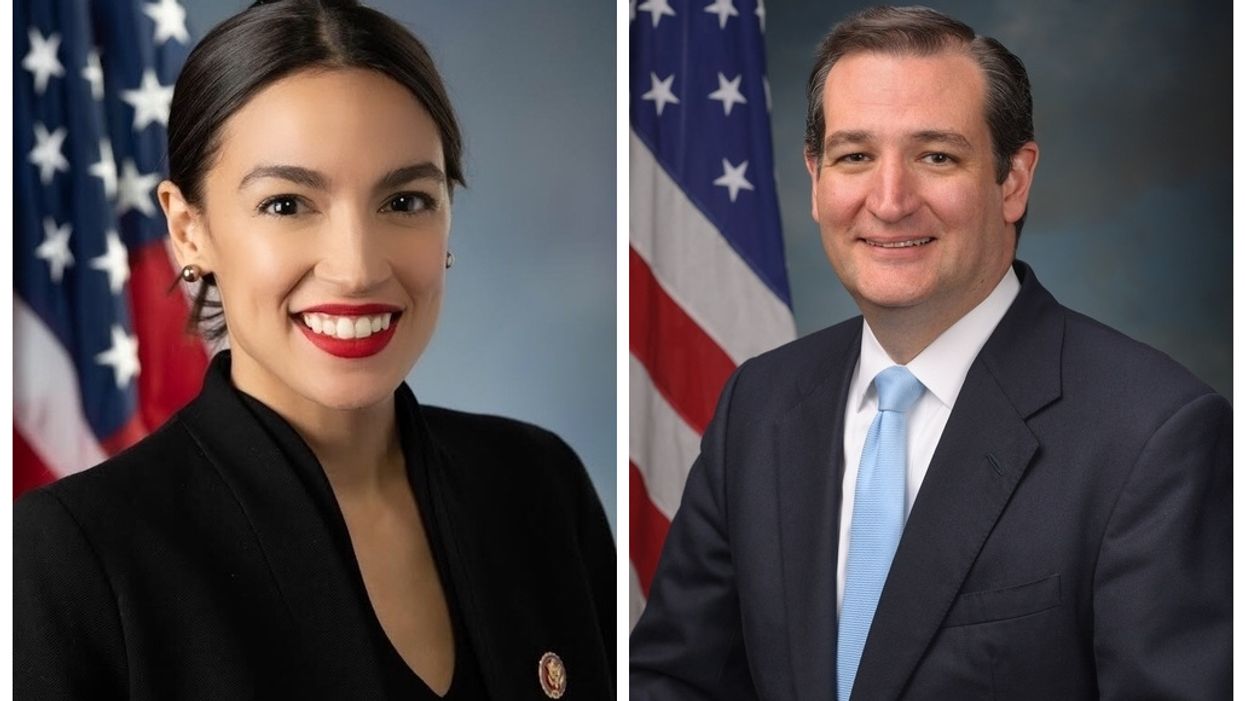A pair of polarizing firebrands from opposite ends of the political spectrum have promised to work together to solve a perennial hot-button annoyance of clean government advocates.
Republican Sen. Ted Cruz and Democratic Rep. Alexandria Ocasio-Cortez agreed last week to collaborate on a bill to shut down the revolving door between Congress and K Street.
But it's unclear the extra attention drawn to the issue from such an odd political couple will jumpstart a legislative campaign that has always stalled in the past. And it's just as unclear a lifetime ban on former members lobbying on Capitol Hill, which the two proposed, could actually work as intended.
Among those who left Congress this year and taken jobs outside of politics, almost 60 percent are already lobbying or involved in work that influences federal policy, according to the watchdog group Public Citizen.
In response, Ocasio-Cortez tweeted: "I don't think it should be legal at ALL to become a corporate lobbyist if you've served in Congress."
Cruz then tweeted his agreement, reiterating his previous call for a lifelong ban – and acknowledging a rare moment of harmony with a lawmaker he's excoriated several times on social media for her liberal positions, most recently in favor of doubling the minimum wage.
"If we can agree on a bill with no partisan snuck-in clauses, no poison pills, etc - just a straight, clean ban on members of Congress becoming paid lobbyists - then I'll co-lead the bill with you," Ocasio-Cortez replied. "You're on," came his reply.
A study three years ago by a trio of political scientists found that since the 1970s the number of senators who lobby has gone up by 55 percent and the roster of former House member lobbyists by 40 percent.
That's even though former senators are banned from directly lobbying Congress for two years and former House members for one year. But they are permitted to immediately lobby the executive branch, including administration officials who were once their lawmaking peers. And the Capitol Hill cooling-off period does not say anything about ex-members acting as advisers, consultants or even partners in lobby shops – so long as they don't have direct contact with their onetime colleagues.
It is that significant loophole that would seem to be immune from the sort of legislation Cruz and Ocasio-Cortez are talking about.
Republicans Mike Braun of Indiana and Rick Scott of Florida have proposed Senate legislation to ban ex-lawmakers from lobbying. Republican Trey Hollingsworth of Indiana of a companion bill in the House. Neither bill has any co-sponsors. Neither does a Senate bill by Democrat Jon Tester of Montana that would create a five-year limit on revolving door spinning. That is what Donald Trump proposed as part of his "drain the swamp" agenda in the 2016 campaign, but he has not done anything visible to promote the idea since becoming president.




















Marco Rubio is the only adult left in the room